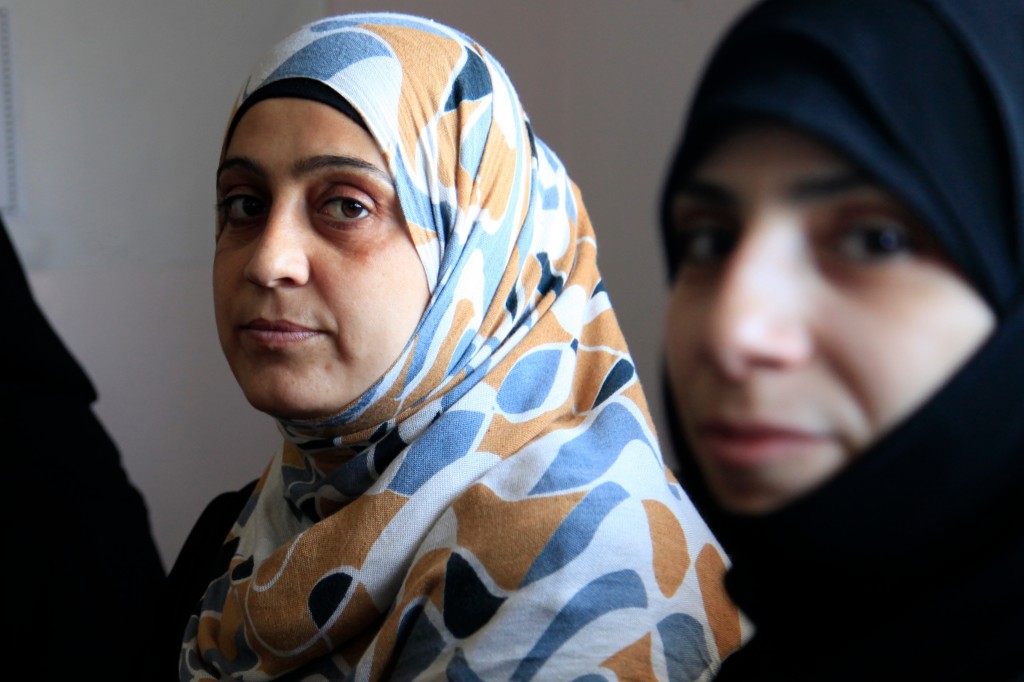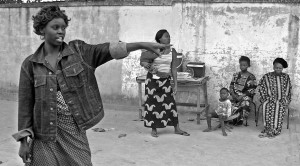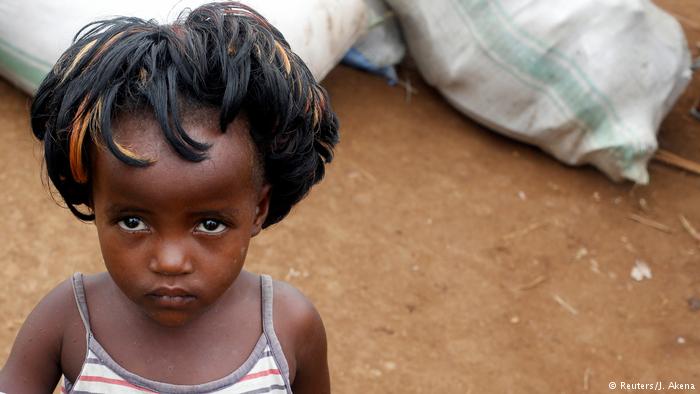Women’s War Wounds Never Really Heal (Part 1)

A raging war in Syria has exposed countless women to mind-numbing violence. (© Russell Watkins/Department for International Development)
For Ameena Sawwan, the survivor of a chemical weapons attack in Syria, it was the Arab Spring that turned out to be the beginning of a nightmare in which she is trapped even today. What started off as peaceful protests against a repressive regime soon gave way to a series of retaliatory attacks by government forces. These days, a civil war rages in her country, a war which has exposed countless citizens, particularly vulnerable women and children like Ameena and her little nieces and nephews, to mind-numbing violence.
“The United Nations, the US, and countless other countries all know about what is happening to us. Everyone has acknowledged [the atrocities] publicly. We are peaceful people and we are being killed mercilessly,” she states. Like Ameena, the throes of conflict have also left Divine, a survivor of the Rwandan Genocide and sexual violence, as a refugee in the Democratic Republic of Congo (DR Congo), in the murky waters of trauma, while Siah (name changed), a rape survivor in the 1991 Kunan Poshpora incident in Kashmir, has spent years on end struggling for survival and fighting for justice.

There are as many as 200,000 surviving rape victims in the Democratic Republic of Congo and each one of them has a harrowing account to share. (© Phllipe Fabregue – Flickr Creative Commons)
Despite the fact that Ameena, Divine and Siah are separated by geographical boundaries, their gruesome realities clearly reveal that conflict leaves a lasting impact on women and girls. If physically they have to cope with debilitating injuries, psychologically, they carry the burden of post-traumatic stress disorder; not many are able to get access to the professional help needed to adjust to the crippling pain. Add to these, is a third dimension – social discrimination. Rape survivors and those who have been subjected to other forms of sexual violence are often either thrown out of their homes or discriminated against not just by their own family members but also by the community at large.
Rape has been used as a weapon of war
In DR Congo, where the army has been fighting rival militia groups for over a decade now, rape has systematically been used as a weapon of war. In fact, it is estimated that there are as many as 200,000 surviving rape victims in the war-torn nation and each one of them has a harrowing account to share. Divine, who hails from Walungu, is one of them. “Though several years have passed, I can’t forget the pain I had to endure because of the ill-conceived behaviour of so many men. I am one of many women who have been wronged in this way – and [the great tragedy is that] this is still going on. I survived because I fought every day, every minute every possible problem that came my way. But I know that not everyone can muster the kind of strength and resilience needed to overcome such unrelenting torment,” she remarks.
Medical professionals like Dr Denis Mukwege, a renowned surgeon at Panzi Hospital in DR Congo, who has been “treating one woman after another, sending them back to a war zone only to be raped again or ostracised by their communities”, and Dr Ketki Adams, a UK-based gynaecologist, who has extensively served on missions in Congo as well as Rwanda, have seen hundreds of thousands of women like Divine trying to grapple with physical pain and fear. According to Dr Adams, “During conflict, there is no law but the law of brutality. This is why conflict rape is a war weapon; it destroys the very fabric of society. I have seen several cases where girls have come into our tents with torn privates. Some were so horribly disfigured that I would often be reduced to tears after the reconstructive surgery.”
Author: Kirthi Jayakumar
Editor: Marjory Linardy
This is an article from Women’s Feature Service
WTO RECOMMENDS
The legacy of war
An estimated two million ordinance were dropped on Laos during the Vietnam war. 30 percent of the sub-munitions from cluster bombs failed to explode and pose an acute danger to the population. In DW’s report by Norbert Lübbers , women bomb disposal experts remove these bombs to secure their country. (From November 20, 2013)
Rape victims or war heroes: war women in Bangladesh
Hundreds of thousands of women were raped during the Bangladesh Liberation War in 1971. As the country celebrates 40 years of
independence, these victims of war, known as Birangonas, continue to suffer. (From December 29, 2011)
War on women
No one in this world can match the amount of patience and benevolence a woman bestows upon those she loves. Then why are women living in such deplorable and appalling conditions? (From August 21, 2013)






